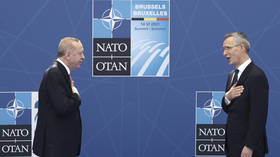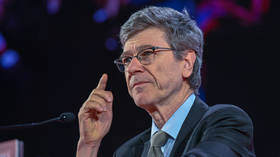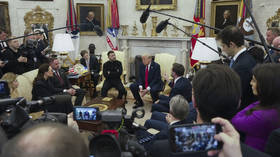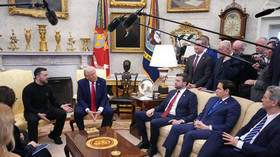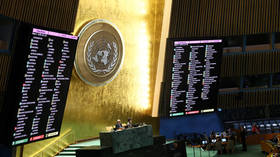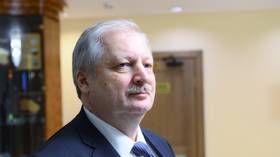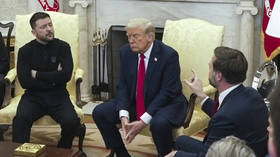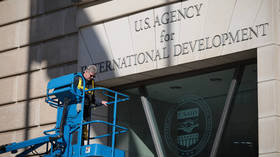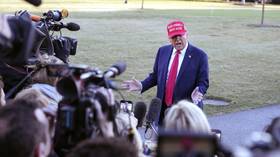Turkey issues strong warning to Germany and France
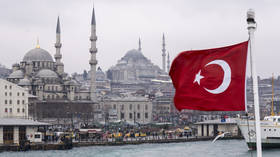
Turkey’s Foreign Ministry has summoned ambassadors from Germany and France to issue a note of protest over the unhindered activity of the Kurdistan Workers’ Party (PKK) in their countries. Ankara has warned all NATO members, and particularly Finland and Sweden, who are trying to join the bloc, that it will not tolerate any support for anti-Turkish terrorist groups.
In an interview with the state-run Anadolu Agency on Tuesday, Foreign Minister Mevlut Cavusoglu stated that Turkey was concerned with the recent rise in activities by the PKK and other organizations in France and Germany, after the group, who Ankara considers to be terrorists, held demonstrations in the two countries.
“We are talking about rallies at which symbols and flags of terrorists were demonstrated. The ambassadors of Germany and France were summoned yesterday to the Foreign Ministry. They were handed notes regarding such actions of terrorist organizations. We gave them a stern warning,” said Cavusoglu.
Although the minister did not specifically mention which displays had prompted Ankara’s response, it seems likely that he was referring to the Long Marches currently being held by Kurdish Youth movements in Germany, France, Greece, England, Sweden, and Switzerland.
The marches, which kicked off on Sunday and are expected to last for several days, are being held in protest at the Turkish state’s alleged invasion and “genocidal attacks” against Kurdistan – a roughly defined separatist territory spread between Turkey, Syria, Iraq and Iran. The movement calls for the freedom of Kurdish leader Abdullah Ocalan and expresses solidarity with the guerrillas who are currently fighting Turkish forces in Southern Kurdistan (Northern Iraq).
The foreign minister’s comments came as he was explaining why Turkey continues to oppose Sweden and Finland’s accession to NATO, reiterating Anakara’s position that it will not agree to the Nordic countries’ membership until they meet Turkey’s demands of halting all support for terrorist groups.
He pointed to the fact that both nations continue to provide political, military and economic assistance to terrorist groups such as the PKK, its Syrian offshoot the YPG, and FETO, which Ankara believes to be behind an attempted coup in 2016. Cavusoglu also noted that both of the countries refuse to extradite any members of these organizations, despite them facing prosecution in Turkey.
Asked to comment on the attempts of NATO Secretary General Jens Stoltenberg to get Turkey to hold a meeting with Finland and Sweden at the alliance’s headquarters, Cavusoglu stated that although he was grateful for these efforts, Ankara had its own way of doing things.
“We are not against diplomacy for the resolution of this problem. We thank the secretary general for his efforts. But we have already handed these two countries a formal document about our demands. We cannot hold another meeting before we receive an answer,” he said.
On Sunday, Turkish leader Recep Tayyip Erdogan stated that, as long as he is president, his country will never allow any nation supporting terrorism to join NATO, reiterating that Turkey will not give a green light to Finland and Sweden’s bids until they properly address Ankara’s concerns.
Delegations from the two Nordic countries met with their Turkish counterparts last week and were issued a list of demands, among which is the crackdown on groups Ankara considers to be extremists. However, Erdogan has blasted these talks as dishonest.
“They are not honest or sincere,” he said. “They don’t take necessary steps, they are still allowing the terrorists to freely walk in the streets of Stockholm and provide security to them with their police.”
Finland and Sweden both decided to break with their history of neutrality on May 15, citing Russia’s military offensive against Ukraine as motivation for them to join NATO. Their membership bids were welcomed by Washington and its European NATO allies, however, Turkey and Croatia have threatened to obstruct the applications unless their national security concerns are addressed.
